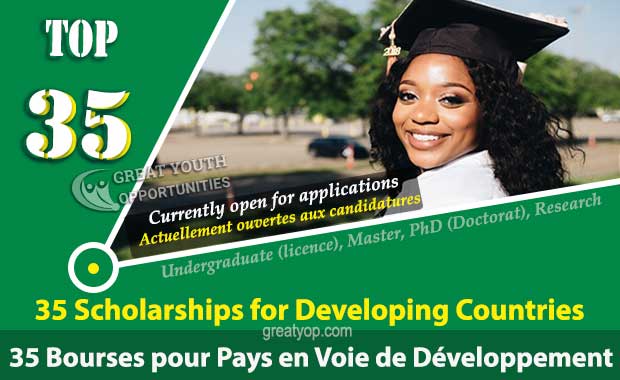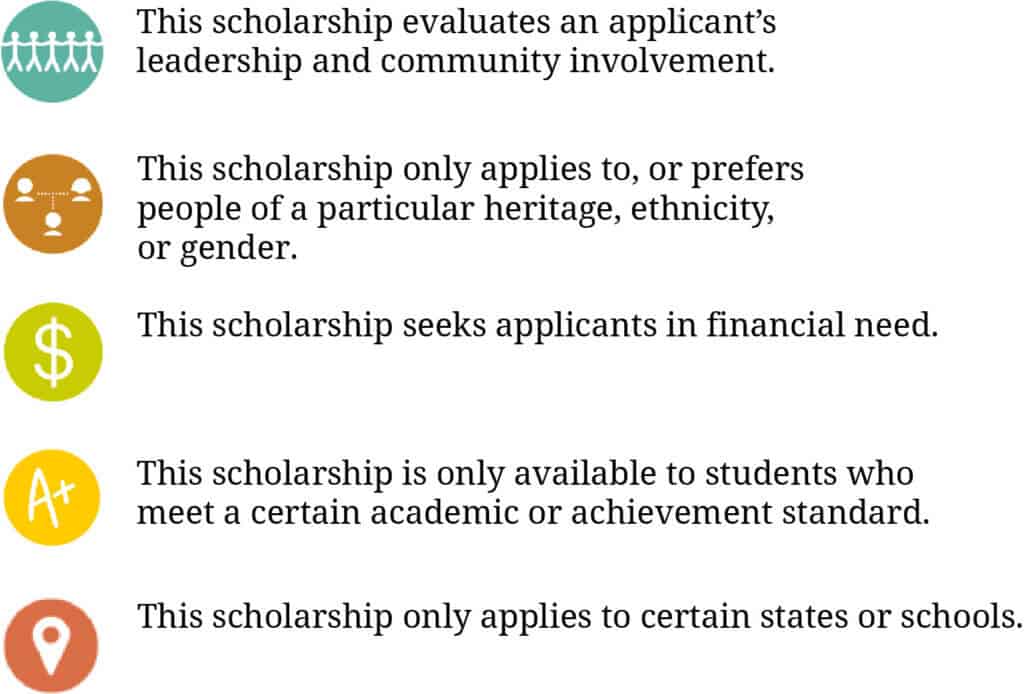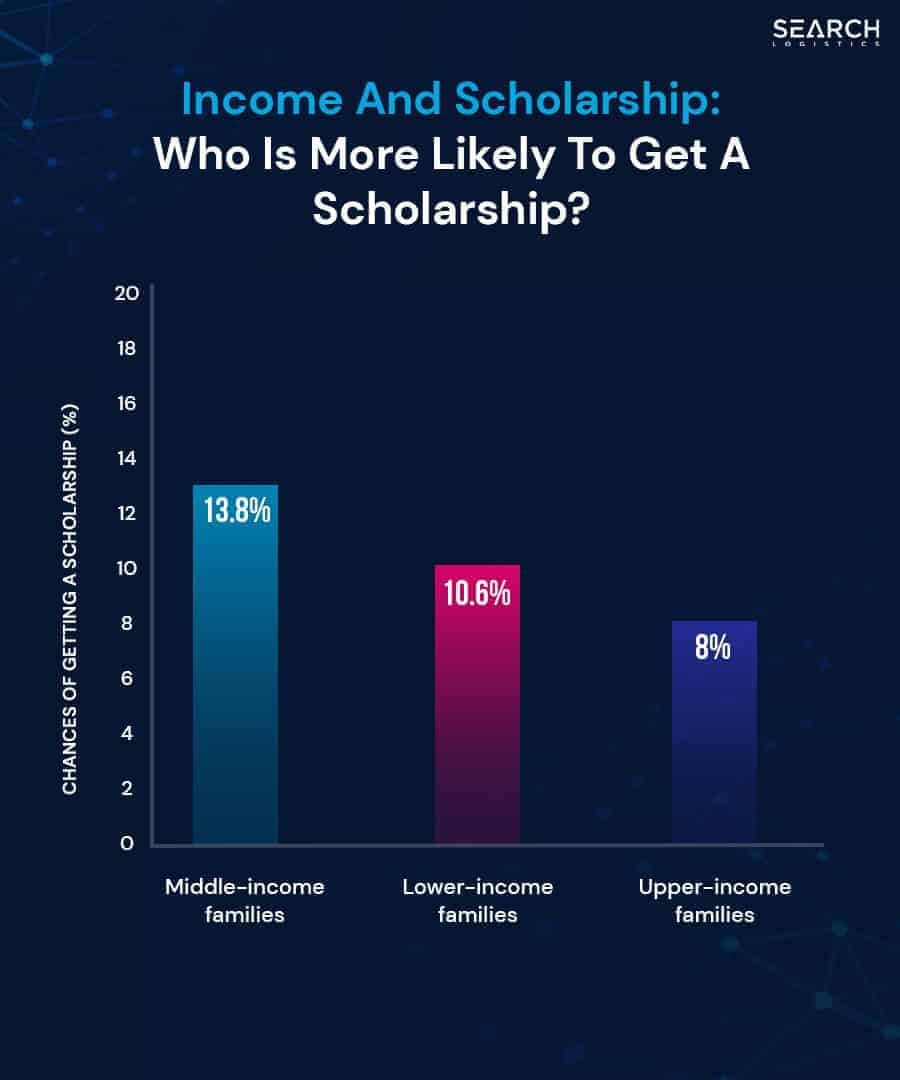Top 10 Scholarships for Developing Country Students

Pursuing higher education can be financially challenging, especially for students from developing countries. Numerous scholarships, however, aim to alleviate this burden and empower talented individuals to achieve their academic aspirations. This article unveils ten exceptional scholarships specifically designed for students from developing nations. These opportunities offer not only financial assistance but also access to world-class educational institutions and invaluable experiences. We delve into the eligibility criteria, application procedures, and unique benefits of each scholarship, providing a comprehensive guide to help aspiring students unlock their potential and contribute to global progress. Discover the pathways to your academic dreams and explore the possibilities that await.
Top 10 Scholarships for Developing Country Students
The pursuit of higher education can be financially challenging, especially for students from developing countries. Fortunately, numerous scholarships are available to support these aspiring scholars in achieving their academic goals. These scholarships provide not only financial assistance but also opportunities for personal and professional growth. They can cover tuition fees, living expenses, travel costs, and other related expenses, significantly reducing the financial burden on students and their families. These opportunities are often highly competitive, but with careful research and preparation, students from developing countries can significantly increase their chances of securing funding for their education. This enables them to access quality education and contribute to the development of their home countries upon graduation.
1. Eligibility Criteria for Developing Country Scholarships
Eligibility criteria for scholarships targeted towards students from developing countries vary depending on the specific scholarship program. Generally, applicants must be citizens of a developing country, as defined by organizations such as the World Bank or the United Nations. Most scholarships require applicants to demonstrate academic excellence, usually through high grades and standardized test scores. Some scholarships may also consider factors such as leadership potential, community involvement, and demonstrated financial need. Furthermore, age restrictions and specific field of study requirements may apply. It is crucial for applicants to carefully review the eligibility criteria of each scholarship program to ensure they meet all the requirements before applying.
2. Finding the Right Scholarship Opportunities
Identifying the right scholarship opportunities requires diligent research and a strategic approach. Start by exploring online databases such as Scholarships.com, InternationalScholarships.com, and the Fastweb scholarship database. University websites often have dedicated pages listing scholarships available to international students, including those from developing countries. Networking with current students and alumni from your country who have studied abroad can provide valuable insights and recommendations. Finally, contacting educational advisors or career counselors at your current institution can also help you identify relevant scholarship programs that align with your academic background and career aspirations.
3. Crafting a Compelling Scholarship Application
A compelling scholarship application is crucial for standing out from the competition. Start by thoroughly understanding the scholarship's mission and values and tailor your application to reflect those aspects. Your personal statement should tell a compelling story that highlights your academic achievements, leadership experiences, and commitment to making a positive impact in your community. Obtain strong letters of recommendation from professors or mentors who can attest to your abilities and potential. Proofread your application carefully for any grammatical errors or typos, as even minor mistakes can detract from your overall impression. Finally, be authentic and let your personality shine through in your writing.
4. Common Scholarship Application Requirements
Scholarship applications typically require a comprehensive set of documents to assess your qualifications and potential. You will need to provide official transcripts from all previous educational institutions, demonstrating your academic performance. Standardized test scores, such as TOEFL or IELTS for English proficiency, may also be required. A personal statement or essay is a crucial component, allowing you to showcase your personality, aspirations, and motivations. Letters of recommendation from professors, mentors, or employers are essential for providing external validation of your skills and qualities. Finally, a detailed curriculum vitae (CV) or resume outlining your educational background, work experience, and extracurricular activities is necessary for providing a comprehensive overview of your profile.
5. Benefits Beyond Financial Assistance
Scholarships offer benefits that extend beyond mere financial assistance, providing recipients with valuable opportunities for personal and professional growth. Many scholarships provide networking opportunities through conferences, workshops, and mentorship programs, allowing students to connect with professionals in their field. Some scholarships offer leadership development training, equipping students with the skills and knowledge to become effective leaders in their communities. Scholarships can also enhance a student's cultural awareness by providing opportunities to study abroad and interact with people from diverse backgrounds. Ultimately, scholarships can empower students to reach their full potential and make a meaningful contribution to society.
| Scholarship Name | Target Region/Countries | Eligibility Requirements | Benefits |
|---|---|---|---|
| Rhodes Scholarship | Worldwide (with specific quotas for regions) | Outstanding intellect, character, leadership, and commitment to service. | Fully funded postgraduate study at Oxford University. |
| Chevening Scholarship | Wide range of developing countries | Demonstrated leadership potential and a strong academic record. | Fully funded master's degree programs in the UK. |
| Fulbright Foreign Student Program | Varies by country | Varies based on the specific country agreement. Typically requires a strong academic record and clear research objectives. | Study, research, or teaching opportunities in the United States. |
| Erasmus Mundus Scholarship | Worldwide | Excellent academic record and relevant work experience. | Full tuition fees, travel, and living allowance for a joint master's degree program in Europe. |
| Commonwealth Scholarship | Commonwealth countries | Citizen of a Commonwealth country, demonstrated academic excellence. | Tuition fees, living allowance, and return airfare for postgraduate study in the UK. |
| DAAD Scholarship | Developing countries | Excellent academic record and relevant work experience. | Monthly allowance, travel allowance, health insurance, and tuition fee waiver for study and research in Germany. |
| ADB-Japan Scholarship Program | Developing member countries of the Asian Development Bank | Admission to an approved graduate program, demonstrated academic excellence. | Full tuition fees, monthly stipend, medical insurance, and travel allowance for postgraduate study in Asia and the Pacific. |
| World Bank Graduate Scholarship Program | Developing countries | Citizen of a developing country, admission to an approved graduate program. | Tuition fees, living allowance, and travel expenses for graduate studies. |
| Mastercard Foundation Scholars Program | Sub-Saharan Africa | Demonstrated leadership potential and a commitment to giving back to their communities. | Comprehensive financial support, including tuition, accommodation, and living expenses, as well as leadership development and career support. |
| Swiss Government Excellence Scholarships | Varies by country | Excellent academic record and a clear research proposal. | Monthly allowance, tuition fees, health insurance, and flight allowance for postgraduate study or research in Switzerland. |
What is the number 1 scholarship in the world?

Scholarship Funding and Coverage
The amount of funding a scholarship provides is a significant factor in determining its value. A scholarship that offers full tuition, living expenses, and travel stipends would generally be considered more attractive than one that only covers partial tuition. Moreover, the duration of the scholarship matters. Scholarships that support students throughout their entire degree program are highly valued.
- Consider the level of education being pursued.
- Consider the level of funding being granted.
- Determine the need for cost coverage.
Prestige and Recognition
The prestige associated with a scholarship can significantly impact a student's future career prospects. Scholarships awarded by renowned organizations or universities often carry considerable weight and can open doors to various opportunities. For example, being a Rhodes Scholar or a Fulbright Scholar often translates into instant recognition and credibility.
- Consider the prestige of the scholarship.
- Consider the awarding institution.
- Consider how recognition will improve a candidate's chances.
Eligibility and Competitiveness
Scholarships with highly selective admission criteria are often considered more prestigious and valuable. A scholarship that attracts a large pool of talented applicants and has a very low acceptance rate is likely to be viewed as highly competitive and therefore desirable. The rigor of the application process and the caliber of past recipients also contribute to its perceived value.
- Research the requirements and prerequisites.
- Take into account the acceptance rates for the scholarship.
- Determine how the competitiveness of the scholarship will improve the candidate's chances.
Subject Area and Career Impact
Some scholarships are specifically designed to support students in particular fields of study. The value of such a scholarship depends on the demand and potential impact of that field. For instance, scholarships in STEM fields (Science, Technology, Engineering, and Mathematics) or in areas addressing global challenges like climate change or public health may be considered highly valuable due to their potential for societal impact.
- Study the types of subjects the scholarship supports.
- See if the subjects match the candidate's field of study.
- Determine the potential impact of the field on the candidate's career.
Global Reach and Accessibility
Scholarships that are open to students from all over the world are generally considered more impactful than those limited to specific regions or nationalities. A scholarship that promotes international collaboration and exchange can have a significant impact on global understanding and cooperation. The ease of access to information about the scholarship and the simplicity of the application process also contribute to its overall value.
- Make sure the scholarship is accessible to international students.
- Study the ease of access to information about the scholarship.
- Determine the simplicity of the application process.
How to get 100% scholarship?

Academic Excellence is Critical
A stellar academic record significantly enhances your chances of securing a 100% scholarship. Focus on excelling in your coursework and demonstrating academic rigor.
- Maintain a high GPA: Aim for the highest GPA possible. Colleges often have minimum GPA requirements for scholarship eligibility.
- Excel in Standardized Tests: Prepare thoroughly for standardized tests like the SAT or ACT (or their equivalents in your country) and aim for high scores. A high score can significantly boost your application.
- Take Challenging Courses: Opt for advanced placement (AP), International Baccalaureate (IB), or honors courses to demonstrate your willingness to challenge yourself academically. This demonstrates your ability to handle rigorous coursework at the college level.
Crafting a Compelling Personal Essay
Your personal essay is your opportunity to showcase your personality, goals, and unique experiences. It is your chance to demonstrate to the scholarship committee who you are beyond your academic transcripts.
- Tell a Story: Don't just list your accomplishments; tell a compelling story that reveals your character and motivations. Authenticity and vulnerability are key.
- Highlight your Goals and Aspirations: Clearly articulate your academic and career goals and explain how the scholarship will help you achieve them. Connect your goals to the values and mission of the scholarship provider.
- Show, Don't Tell: Use vivid language and specific examples to illustrate your points. Avoid generic statements and focus on showcasing your unique qualities and experiences.
Demonstrating Leadership and Extracurricular Involvement
Scholarship committees seek well-rounded individuals who are actively involved in their communities and demonstrate leadership potential. Your extracurriculars are your opportunity to shine.
- Participate in Meaningful Activities: Choose activities that you are passionate about and that align with your interests. Quality over quantity is important.
- Seek Leadership Roles: Actively seek leadership positions within your extracurricular activities to demonstrate your ability to lead and inspire others. Even leading a small team demonstrates valuable leadership skills.
- Volunteer and Give Back to Your Community: Volunteering demonstrates your commitment to making a difference in the world and your willingness to help others. Highlight the impact of your volunteer work.
Understanding and Presenting Financial Need
Many scholarships are need-based, so accurately and honestly presenting your financial situation is crucial. Your financial need helps the scholarship committee assess how their support can help you.
- Complete the FAFSA (if applicable): The Free Application for Federal Student Aid (FAFSA) is the standard application for federal financial aid in the United States. Completing the FAFSA is often a prerequisite for many scholarships.
- Gather Supporting Documentation: Collect all necessary financial documents, such as tax returns, bank statements, and income statements, to support your application. Accuracy and completeness are essential.
- Write a Financial Need Statement (if required): Some scholarships may require a separate statement explaining your financial need in detail. Clearly and concisely explain your financial circumstances and how the scholarship will alleviate your financial burden.
Strategic Scholarship Application and Research
Finding and applying for the right scholarships is crucial to maximizing your chances of success. A strategic approach to scholarship applications involves research, organization, and attention to detail.
- Research Thoroughly: Use online resources, college websites, and scholarship databases to identify scholarships that align with your profile and qualifications. Cast a wide net and explore all available options.
- Meet All Eligibility Requirements: Carefully review the eligibility requirements for each scholarship before applying. Only apply for scholarships that you are fully eligible for.
- Proofread and Edit Carefully: Before submitting your application, proofread and edit it carefully for any errors in grammar, spelling, or punctuation. A polished and error-free application demonstrates attention to detail.
What are the top 5 scholarships?

Eligibility Criteria for Top Scholarships
The eligibility criteria for these scholarships vary considerably, but some common requirements include academic excellence, leadership potential, and a commitment to making a positive impact on the world. Specific degree requirements, GPA thresholds, and nationality restrictions also apply. Here's a general breakdown:
- Academic Performance: Typically, a strong academic record is essential, often including a high GPA and excellent performance in relevant coursework.
- Leadership Experience: Many scholarships seek individuals who have demonstrated leadership qualities in their academic, professional, or community activities.
- Personal Qualities: Factors like resilience, motivation, integrity, and a clear sense of purpose are often considered.
Financial Coverage Offered by Top Scholarships
These scholarships are renowned for their comprehensive financial support. Full tuition coverage is standard, and most also include stipends for living expenses, travel allowances, health insurance, and research funding. The specific amount varies, but the goal is to ensure that scholars can focus on their studies without financial burden.
- Tuition Fees: All tuition fees are generally covered by these scholarships.
- Living Expenses: A stipend is provided to cover living expenses such as accommodation, food, and personal expenses.
- Travel Allowances: Funding is often provided for travel to and from the scholarship location, as well as for research-related travel.
Application Process for Top Scholarships
The application process for these scholarships is rigorous and competitive. It typically involves submitting transcripts, essays, letters of recommendation, and standardized test scores (if required). A strong personal statement is crucial, as is demonstrating a clear alignment between your goals and the scholarship's mission.
- Online Application: The initial step involves completing an online application form, providing personal and academic information.
- Essays: Applicants are typically required to write several essays addressing specific prompts related to their goals, experiences, and leadership potential.
- Letters of Recommendation: Strong letters of recommendation from professors, mentors, or employers are essential.
Prestige and Recognition of Top Scholarships
These scholarships carry significant prestige and recognition. Being a recipient can open doors to future academic and professional opportunities. The networking opportunities within the scholarship communities are also invaluable.
- Enhanced Reputation: Winning a prestigious scholarship can significantly enhance your academic and professional reputation.
- Networking Opportunities: Scholars become part of a valuable network of talented individuals from around the world.
- Career Advancement: The recognition and skills gained can lead to accelerated career advancement.
Tips for Securing Top Scholarships
To increase your chances of securing one of these scholarships, it's essential to start preparing early, research the scholarships thoroughly, and tailor your application to each scholarship's specific criteria. Seek feedback on your essays and practice your interview skills.
- Start Early: Begin researching and preparing your application materials well in advance of the deadline.
- Tailor Your Application: Customize your essays and other materials to align with the specific values and mission of each scholarship.
- Seek Feedback: Ask professors, mentors, or career advisors to review your application materials and provide feedback.
Which government scholarship gives the most money?

National Science Foundation (NSF) Graduate Research Fellowship Program (GRFP)
The NSF GRFP is a highly competitive program that supports outstanding graduate students in STEM fields. It provides a substantial stipend, plus a cost-of-education allowance to the institution. This fellowship is highly regarded and opens doors to numerous research opportunities. The stipend is designed to cover living expenses, allowing fellows to focus on their research without significant financial burden. The program aims to nurture future leaders in science and engineering.
- Stipend: Offers a significant annual stipend to cover living expenses.
- Cost-of-Education Allowance: Provides a substantial allowance to the institution to cover tuition and fees.
- Duration: Supports graduate students for three years.
National Institutes of Health (NIH) Research Training Grants (T32)
NIH T32 grants are institutional awards given to universities to support research training programs for pre- and post-doctoral students in health-related fields. While the funding goes to the institution, it directly benefits students through stipends, tuition support, and research resources. These grants are highly competitive and typically focused on specific areas of biomedical research. The goal is to train the next generation of researchers in critical health-related disciplines, equipping them with the skills and knowledge needed to advance scientific understanding and improve human health.
- Stipend: Provides a stipend based on experience level, often covering living expenses.
- Tuition Support: Typically covers tuition and fees for the duration of the training program.
- Research Resources: Offers access to state-of-the-art research facilities and mentorship from leading scientists.
Department of Defense (DoD) Science, Mathematics, and Research for Transformation (SMART) Scholarship
The SMART Scholarship program is offered by the DoD to support undergraduate and graduate students pursuing degrees in STEM fields critical to national security. In exchange for scholarship funding, recipients agree to work for the DoD as civilian employees after graduation. This program provides full tuition, a generous stipend, and additional benefits, making it one of the most financially rewarding government scholarships. The program aims to develop a highly skilled STEM workforce within the DoD, ensuring that the agency has access to the talent needed to address national security challenges.
- Full Tuition: Covers the full cost of tuition and mandatory fees.
- Stipend: Provides a generous annual stipend to cover living expenses.
- Additional Benefits: Includes health insurance reimbursement, book allowance, and internship opportunities.
Fulbright Program
While not strictly a scholarship for studying in the US, the Fulbright Program provides funding for US citizens to study, research, or teach abroad, and for foreign citizens to do the same in the US. The amount of funding varies depending on the country and the project, but it can be quite substantial, covering travel, living expenses, and research costs. This program fosters international collaboration and cultural exchange, promoting mutual understanding between the US and other countries. Fulbright scholars are expected to be cultural ambassadors, sharing their knowledge and experiences with others.
- Travel Expenses: Covers round-trip travel to the host country.
- Living Stipend: Provides a stipend to cover living expenses in the host country.
- Research Allowance: May include funding for research materials, language training, and other project-related expenses.
The Paul & Daisy Soros Fellowships for New Americans
Although not exclusively a government scholarship, it deserves mention due to its significant funding. The Paul & Daisy Soros Fellowships for New Americans supports immigrants and the children of immigrants pursuing graduate degrees in the United States. This fellowship provides substantial financial support, including tuition and a living stipend, allowing fellows to pursue their academic and professional goals without undue financial burden. The program recognizes the contributions of immigrants to American society and aims to support future leaders who will make a positive impact on the world.
- Tuition Support: Provides up to $25,000 per year in tuition support.
- Living Stipend: Offers a stipend of up to $25,000 per year to cover living expenses.
- Community and Mentorship: Connects fellows with a network of accomplished individuals and provides mentorship opportunities.
Frequently asked questions
What are some of the most prestigious scholarships available for students from developing countries?
Some of the most prestigious scholarships include the Rhodes Scholarship, which offers full funding for postgraduate study at the University of Oxford, the Chevening Scholarship, funded by the UK government and covering tuition fees, living expenses, and return airfare, the Fulbright Foreign Student Program, providing opportunities for graduate students, young professionals, and artists to study and conduct research in the United States, and the Erasmus Mundus Scholarship, a program funded by the European Union supporting international students pursuing master's degrees and doctorates in Europe.
What are the eligibility criteria typically required for scholarships for students from developing countries?
Generally, eligibility criteria include being a citizen of a developing country, demonstrating academic excellence through transcripts and test scores, possessing strong leadership potential and a commitment to contributing to their home country, meeting language proficiency requirements (often English), and being accepted into a program of study at the scholarship-granting institution; specific requirements vary by scholarship.
How can I effectively search and apply for scholarships tailored to students from developing countries?
To effectively search for scholarships, utilize online databases and search engines, filter results by nationality, field of study, and degree level, explore university websites and international organizations' websites, and thoroughly read the eligibility criteria and application instructions; when applying, craft a compelling personal statement, highlight your achievements, and provide strong letters of recommendation.
What types of financial support do these scholarships generally provide to students from developing countries?
These scholarships typically offer comprehensive financial support, which can include full or partial tuition fee coverage, a stipend for living expenses, travel allowances for airfare to and from the host country, health insurance coverage, and sometimes additional funding for research materials, books, or conference attendance, enabling students to focus on their studies without significant financial burden.
